What it's like to finish both Divinity: Original Sin games with a friend
You may not be friends by the end.

What an absolutely mad idea Larian had. Of all the solitary, longform, completely-not-appropriate-for-couchplay gaming experiences I can think of, old school isometric RPGs sit teetering at the top of Mount Impractical. And yet somehow—somehow—I played through two Divinity: Original Sin games, start to finish, with the same friend sitting next to me.
And we’ll always treasure those 100-odd hours, too. It’s just that we choose never to speak about it. Or make eye contact.
Round one
Our first mistake was to both choose archer builds at the beginning of Original Sin. Honestly, we didn’t realise quite how challenging the combat was going to be, and how important a well-balanced party is when you’re beset by sentient gargoyles and poisonous gases. It’s rarely just a group of angry chaps in Divinity, is it? Anyway, it was all fun and games as we shot through the first game’s opening like the Legolas Twins, easily downing level 1 Cursed Lieutenants on the beaches outside Cyseal and congratulating each other for well-timed and well-judged attacks. What fun.
We quickly found opportunities for get-rich-quick schemes, too. He’d keep the denizens of Cyseal talking while I’d go inside their house and steal all their paintings, then sell those paintings on to a merchant before the owner finished chatting. We’d halve the gold, you understand. Yes, in those early hours ours was a harmonious partnership, just two Source Hunters blissfully exploring a sun-drenched fantasy land with our followers, Jahan and Bairdotr, in tow.
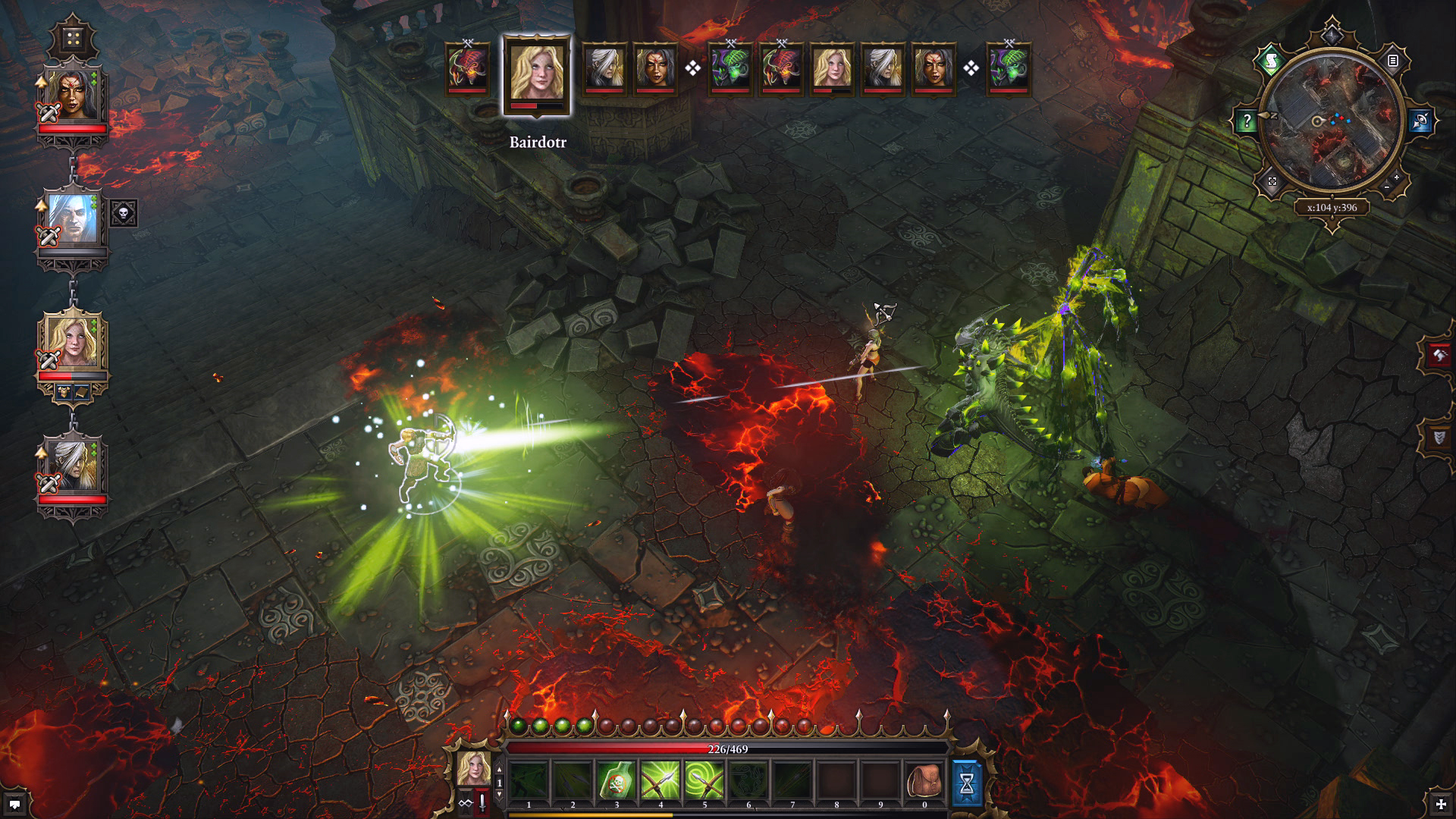
Eight hours later, we hated each other. Not a straightforward superhero-and-nemesis kind of deal, but the silent, seething hatred of married couples cresting the hill of middle age in four-bed detached homes in the suburbs. You don’t think about how the tiny, unspoken etiquettes of a turn-based RPG can get to a pair of competitive friends, but they do.
For example, how long is it polite to leave a co-op buddy KO’d in a fight before using a precious resurrection scroll on him? What about that co-op buddy’s companion? How precisely do you divvy up gold and equipment? And does it really matter who gets the last hit, and who simply whittled down the health bar to tee it up? Given enough time, the answer to all those questions is simply fuck this other person.
Perhaps that’s the best explanation I can offer as to why I murdered everyone in Cyseal.
We long ago discovered that Divinity: Original Sin doesn’t spawn twice the bows or arrows if you play as two archers, and entered a kind of passive-aggressive standoff every time a new one appeared in a chest. "No, you have it, I’ll make do with this one I’ve had since the start of the game, mate." Or "Ooh—that bow looks nice that you’ve just picked up, Phil. Having that one, are you?"
The biggest gaming news, reviews and hardware deals
Keep up to date with the most important stories and the best deals, as picked by the PC Gamer team.
I’d also discovered fairly early on that I could annoy Tom tremendously by running in a circle around and around him whenever he was locked into conversation with an NPC. There he’d be, finding out some vital information about the cult of the Immaculates holed up in the Luculla Forest, and in the periphery behind his text window, there I’d be running my tiny laps. Jahan followed diligently behind, never daring to question the wisdom of his master’s orders.
It wasn’t all that funny the first time. By the end of Act One, he was quite justified in speaking to me only in single-word responses and weary sighs.
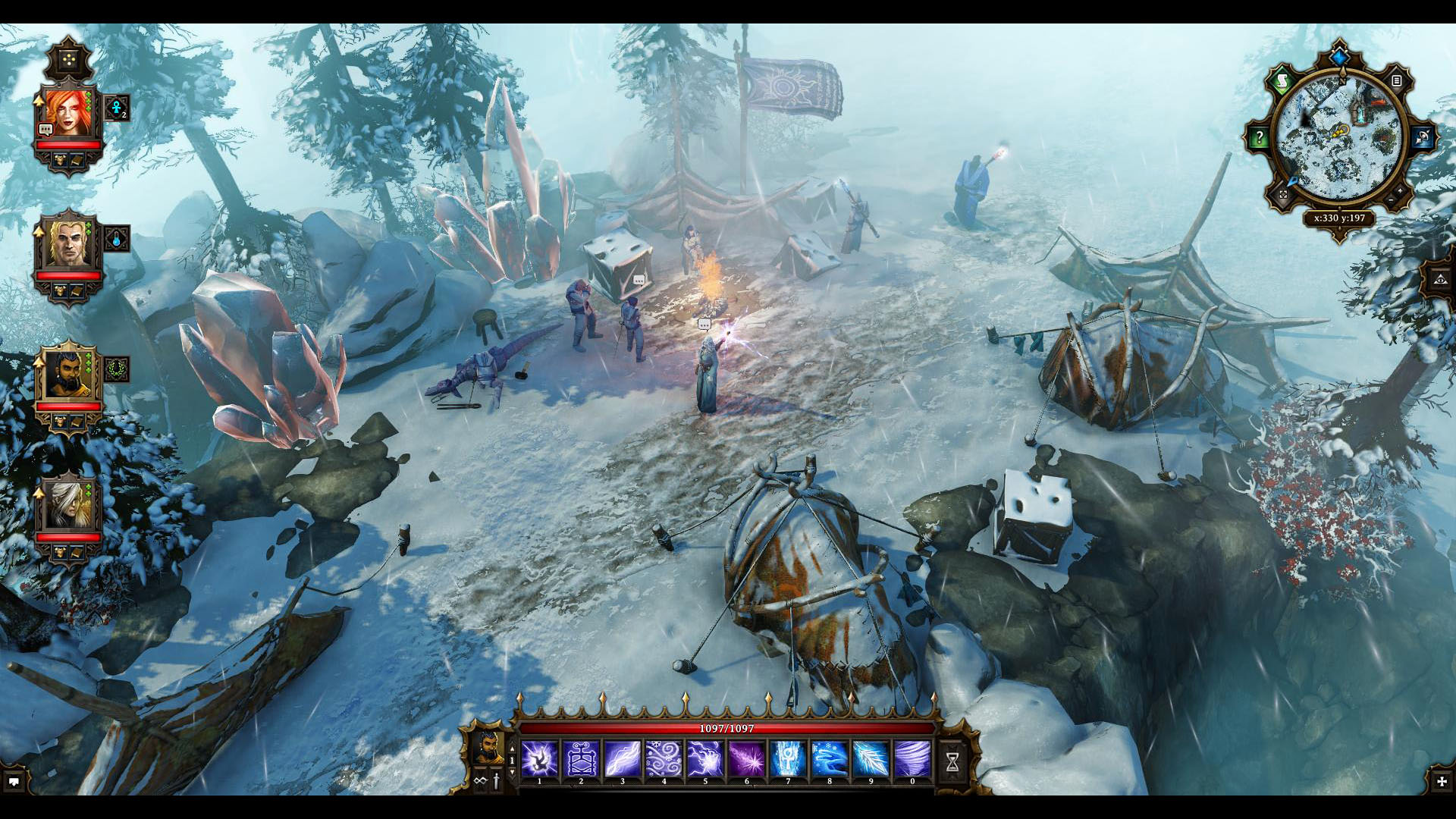
Jahan and Bairdotr had themselves become a source of tension, too. Inexplicably in retrospect, we used Bairdotr as a third archer to complement our already unwise emphasis on ranged combat. Jahan, meanwhile, was all powerful spells and staff attacks, often getting the ‘hero’ turns and mopping up enemies while the three of us held back, firing harmless arrows at varying distances between our own feet and the enemy. For Tom, who’d already had to endure eight hours of me running little circles and nicking the good bows, the chasm in aptitude between his companion and mine was a new low. Bairdotr got the hand-me-down equipment with two previous owners, while Jahan took his pick of the staffs and warrior armor.
These might seem like small grievances over the course of a normal play session. But when you know you’re going to be stuck with your decisions, your character build, and your companions for what might be another full week of playtime, they weigh heavy.
Perhaps that’s the best explanation I can offer as to why I murdered everyone in Cyseal.

By the time of the massacre, we were no longer playing a co-op adventure, but a perpetual one-upmanship sim, sprinting to every loot drop and guzzling the goodies, the pretense of splitting everything down the middle having long since departed. And I could feel that his character was just starting to edge mine for ability. He’d made some smart upgrades and used his elemental bows wisely, while I’d grown fat and complacent on the early advantage my character had. Something had to be done.
It turns men into monsters, and reduces entire world maps into glorified loot chests.
Something incredibly childish and petty, I mean. The idea had been forming for a while, and it began with that godawful cacophony in the market. You know what I mean. "Oh nooooo, traveler, your chakras are all out of alignment!" honks the spell seller. "Let’s see, halibut, tomatoes, sheep’s cheese…" says a passing woman for the 90th time, just before that bloody, bloody cheese seller pipes up with his "The man with the most friends is the man with many cheeses" spiel.
What if I just killed them all, I thought one day. That’d shut them up.
Then I thought: hang on. What if I actually, properly, did? That spell seller alone has every gold piece Tom and I have ever spent in this game, not to mention all the high-level kit and valuable trinkets. I’d be rich beyond my wildest dreams! Powerful as a God-king! And before I’d considered whether it would be much more difficult to complete the game if everyone in town was dead (it was) I had already begun my attack.
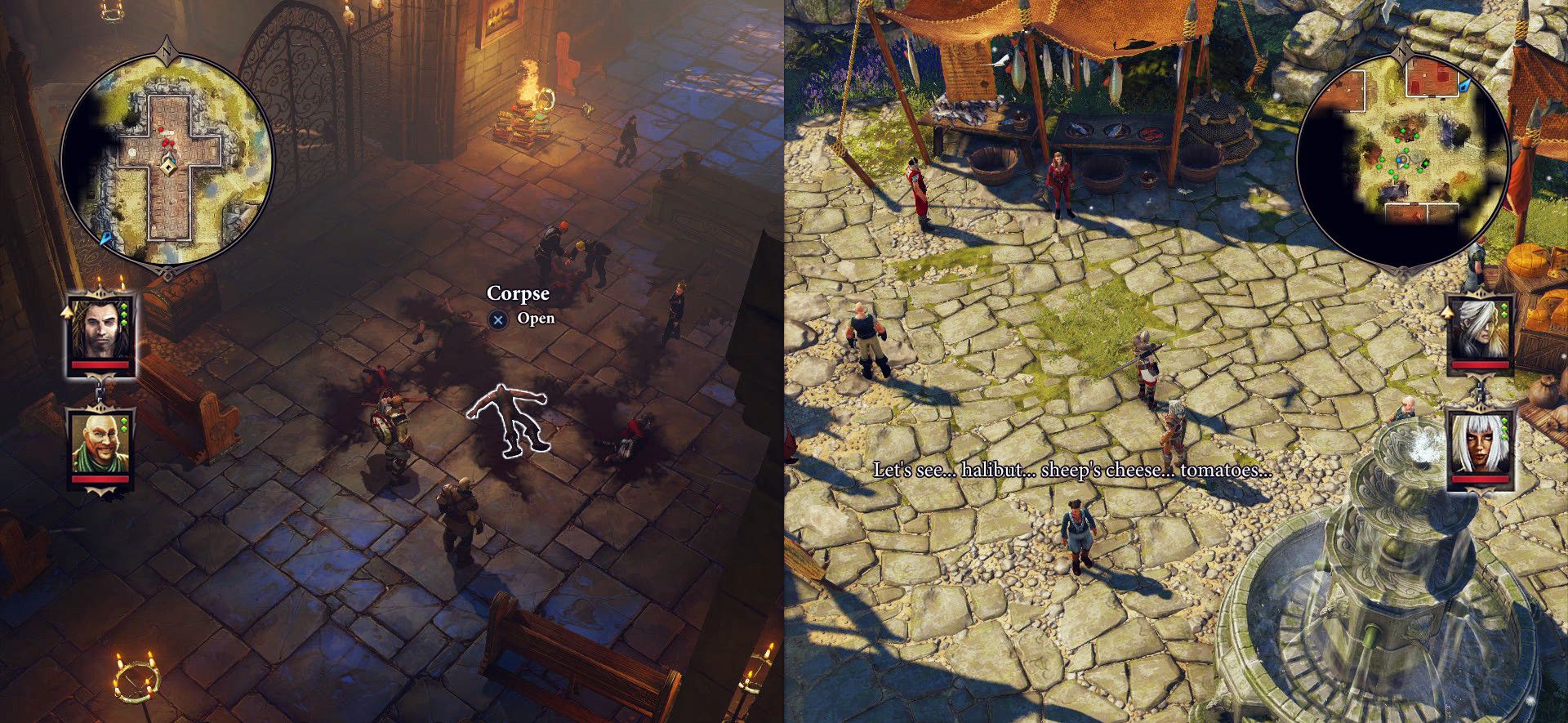
Tom, meanwhile, was miles away in the Luculla Forest and only got wind of my assault when he happened to cast an eye over my screen and saw large-scale combat. It says a lot about the spirit of our playthrough that when he saw what I was doing, he didn’t stop to ask me why. He didn’t head over to join in the fight, or share the plunder. He went straight to the western beaches and found Charla the undead merchant, whose trinkets and weapons were always incredible, prohibitively expensive, and upgradeable. And he killed her.
That’s what playing an RPG in local co-op does. It turns men into monsters, and reduces entire world maps into glorified loot chests. By the time we were done with Divinity: Original Sin, neither of us could feel particularly proud of ourselves.
But when Divinity: Original Sin 2 released, our memories of that bickersome campaign had softened at the edges and become something to reminisce about with wry smiles on our faces. So we did it all over again.
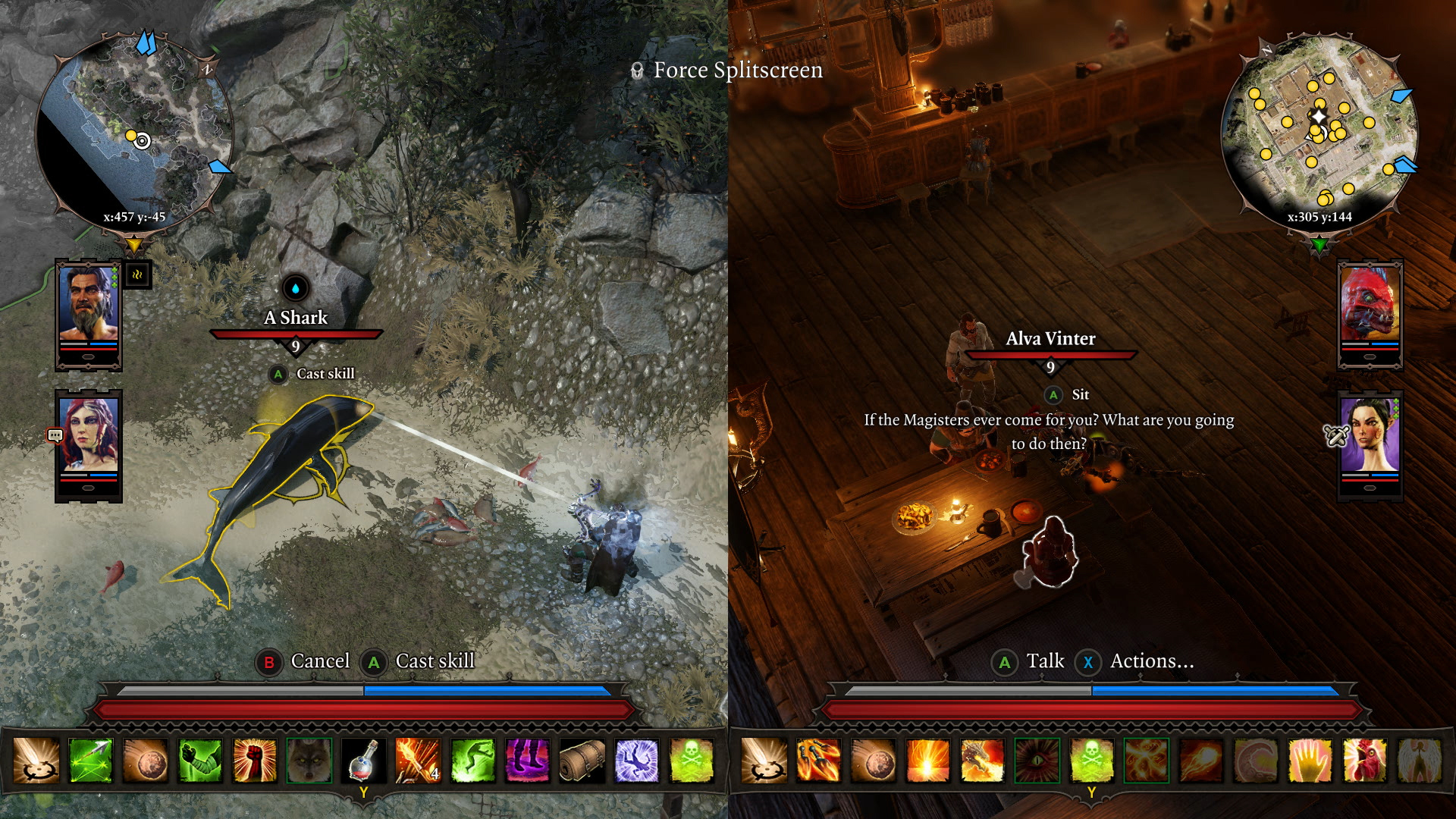
Round two
This time we made no mistakes about party composition. Tom plumped for a cleric build, while I went for a druid summoner. Sound logic. But again, we underestimated what the game would turn us into. I found myself getting irrationally and probably visibly annoyed when Tom gradually took his character away from the original healer remit and instead invested in several powerful magical attacks. This isn’t what you’re supposed to be doing, I screamed to myself in silence every time he landed a ranged staff attack.
You’re probably paying next to no attention to the story because the chances of someone skipping every line of dialogue go up 100% in co-op.
For his part, I could tell that Tom really didn’t like my Incarnate. I pooled points so aggressively into my summonable chum that he quickly became the Cristiano Ronaldo of our party. What’s more, he gave me twice the turns every fight. The relationship soured before we even escaped Fort Joy.
Playing through one epic RPG in co-op is a unique experience. Playing through two of them is sadism. And Larian had obviously listened to its community’s tales of co-op betrayals and skulduggery in the first game, because in Original Sin 2 it’s sort of the whole point. Not only are there opportunities to undermine your partner in small ways at every juncture—I went ahead and won the gladiatorial combat challenge in the outskirts of Fort Joy to release my Source Collar before anyone else, so they were stuck with theirs—but also huge, looming shades of betrayal and tested allegiances in the main plot arc that the game loves to pick at. As Beast and Sebille were pitted against each other by their respective gods in the second act, Tom and I raised a smile in recognition at how we too had been pitted against each other this whole time.
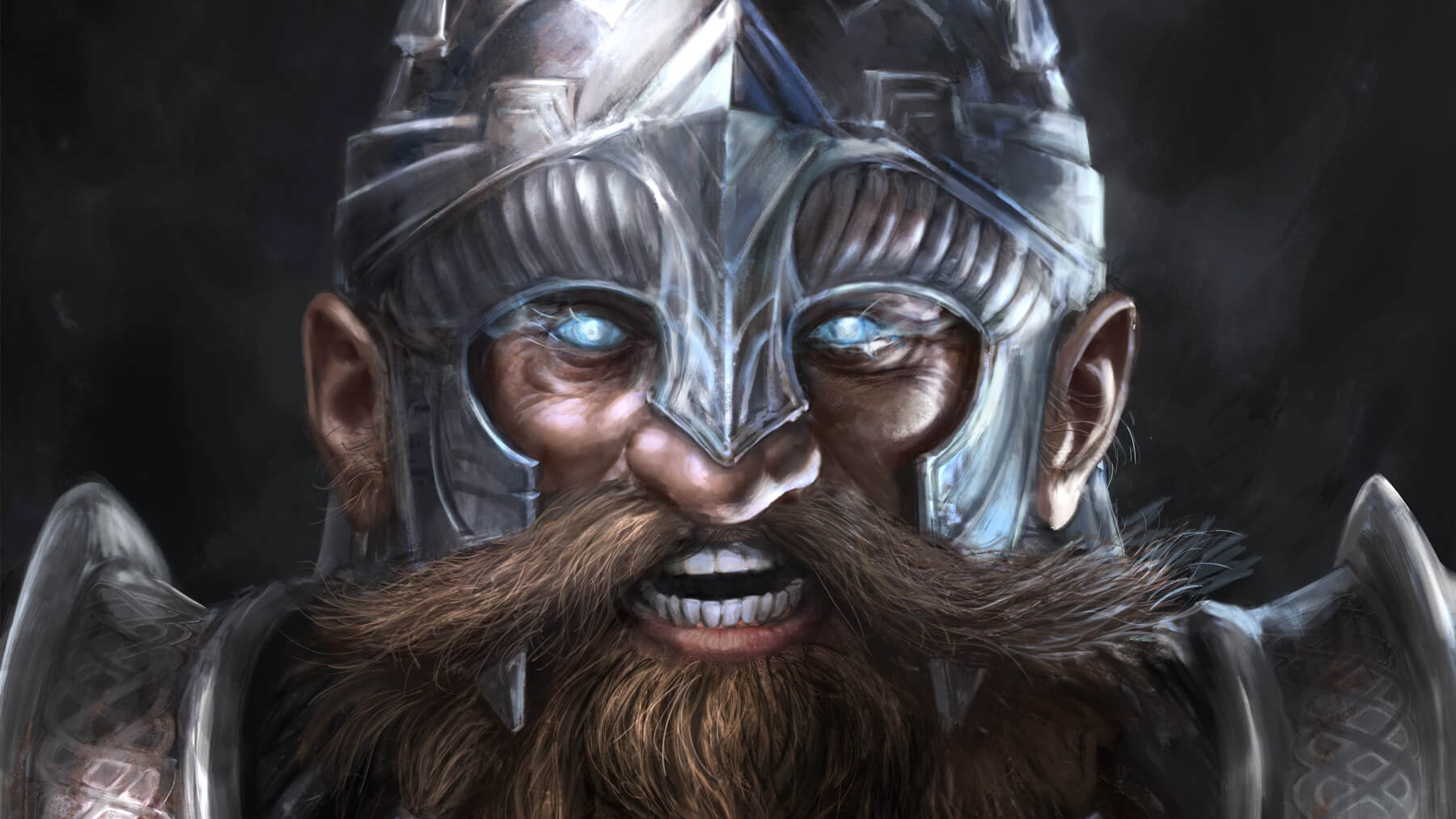
Because Divinity isn’t a co-op game—not really. Playing as a duo is somewhere between a trolling mode and outright competitive play, because the game does absolutely nothing to relieve the obvious tensions that gold distribution might cause, while also actively encouraging disagreements in conversations. And the real kicker is: I think that’s why we kept playing.
If you feel sure you’ll always be on an even keel with your co-op partner, where’s your motivation? You’re probably paying next to no attention to the story because the chances of someone skipping every line of dialogue go up 100% in co-op. So you make your own story: a tale of betrayal and distrust told over 100 hours, in completely bespoke fashion. It’s such a carefully doled out bit of design on Larian’s part that it can easily be overlooked, or even erroneously totted up as a failing, but the uniquely combative nature of co-op in Divinity is the best thing about it.
Phil 'the face' Iwaniuk used to work in magazines. Now he wanders the earth, stopping passers-by to tell them about PC games he remembers from 1998 until their polite smiles turn cold. He also makes ads. Veteran hardware smasher and game botherer of PC Format, Official PlayStation Magazine, PCGamesN, Guardian, Eurogamer, IGN, VG247, and What Gramophone? He won an award once, but he doesn't like to go on about it.
You can get rid of 'the face' bit if you like.
No -Ed.


